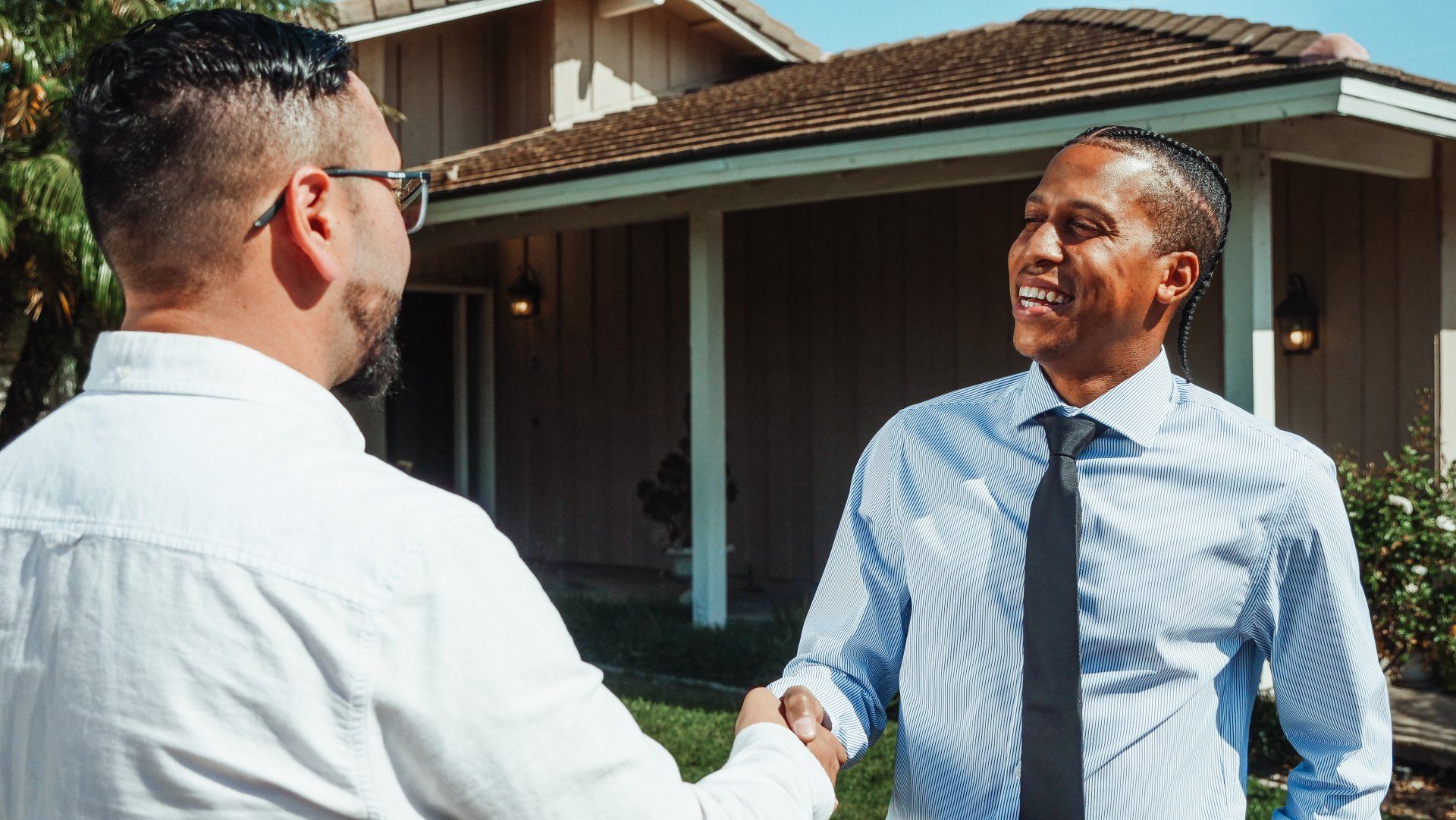Tax-Deferred Exchanges
We provide tax-deferred exchange intermediary services through our affiliate, Investment Protection Exchange Services, LLC. We’ve acted as an intermediary on thousands of transactions, including reverse exchanges.
Unlike other intermediary services, we do not retain any of the earnings on your exchange funds. All monies earned on your exchange funds belong to you. This gives you the comfort of knowing that we are not investing your exchange funds in a vehicle designed to boost our earnings. Instead, we place your exchange funds in safe, liquid accounts with insured and regulated financial institutions, giving you the confidence that your exchange funds will be available to acquire your replacement property.
Below are frequently asked questions (and answers) about tax-deferred exchanges. If you have other questions about a tax-deferred exchange, please contact us at 586-772-7020.
1. What is a 1031 Exchange?
When you sell real estate, you normally owe capital gains tax on the gain from the sale of your property. This gain is the result of the increase value of your property. You will also be liable for taxes, at ordinary income rates, for the recapture of depreciation deductions.
A “1031 exchange” refers to Section 1031 of the Internal Revenue Code. It provides that no capital gain will be recognized on the sale of property “held for productive use in a trade or business or for investment” if you buy other “like-kind” property with the sales proceeds. If your goal is to use the proceeds from the sale of your property to buy investment real estate, a 1031 exchange can provide you with more funds for investment than would be available if you invested the after-tax proceeds from the sale of your relinquished property. It is important to note that Section 1031 does not provide you with a “tax-free” sale of your property; it allows you to defer recognition of your capital gain until you sell the replacement property.
A 1031 exchange is not always a true exchange of properties between two parties. Typically, it is a normal sale and purchase involving the same characteristics as any other sale or purchase, without capital gains tax liability. The most significant difference is that the investor is increasing his leverage by deferring the payment of capital gains taxes. Most other aspects of the transaction are unchanged.
2. What are the IRS requirements for a fully-deferred 1031 exchange?
A. There are some basic requirements to qualify for a 1031 exchange. The relinquished property and the replacement property must be held for either (i) productive use in trade or business, or (ii) investment. If you meet this test, you can exchange any type of real estate for any other type of real estate.
B. From the closing date of the sale of the relinquished property, you have 45 days to identify the replacement property(ies), and 180 days to close the purchase of one or more of the replacement properties that you identified.
C. You cannot touch the proceeds of the sale of the relinquished property. The proceeds are held by an independent qualified intermediary. The proceeds cannot remain in escrow until the replacement second property is acquired. You cannot let a family member, friend, employee or agent hold on to your sale proceeds.
D. Generally, the owner of the relinquished property has to be the owner of the replacement property.
E. You must reinvest all your sales proceeds and purchase a replacement property with a value equal to or more than your relinquished property.
3. Who can do an exchange?
Individuals, corporations, partnerships, limited partnerships, limited liability companies, or any other business entity can take advantage of the non-recognition opportunities under Section 1031.
There are generally no income tax consequences for transfers between spouses. Also, most transfers pursuant to a divorce are free from tax.
4. What is “like-kind” property?
“Like-kind” refers to your use of the real estate and not to its type. So, raw land is “like-kind” to improved real estate. For example, farm land may be exchanged for an apartment building, and a shopping center may be exchanged for an office building.
5. What does “held for investment or productive use” mean?
To qualify for an exchange, property must be held for “productive use in a trade or business, or for investment.” The key factor is how you intend to use the property. The IRS usually considers your intent at the time of the exchange, as well as the nature of your trade or business. The use of the property by anyone else is irrelevant.
The IRS also considers how long you own the property prior to the exchange. While there are no regulations on this point, the IRS usually takes the position that you must own the property owned for two years to meet the requirements of §1031.
6. When should I begin a 1031 exchange?
Ideally, before you enter into a contract to sell your relinquished property, but in any event, it must be before you close the sale of your relinquished property. Once the closing takes place, it is too late to utilize the benefits of Section 1031.
7. What deadlines do I need to meet?
To defer the capital gains tax on your relinquished property, you must meet two specific time requirements:
The 45 Day Rule: You must send a written notice to the qualified intermediary, before midnight on the 45th day after the closing of your relinquished property, identifying the replacement property.
180 Day Rule: You must close on the purchase of your replacement property before midnight of the earlier of:
(a) the 180th day after the closing of your relinquished property, and
(b) the due date, including any extensions, of your tax return.
Your replacement property must be one or more of the properties you identified within the 45-day deadline. If you fail to close the purchase of your replacement property on or before the end of the 180 days, your exchange will not qualify for tax deferral.
8. Are there any requirements about the ownership of the replacement property?
8. The titleholder to the replacement property must be the same as the titleholder to the relinquished property. There are a few exceptions:
A. If you and another person own the relinquished property as tenants in common, you each own an undivided interest in the property. Therefore, you are each free to do, or not do, an exchange.
B. If you are the only owner of the relinquished property, you could exchange into an undivided interest in a replacement property owned with others as tenants-in-common.
C. If you are the sole owner of the relinquished property, you could acquire the replacement property through a single member limited liability company.
9. How do the identification rules work?
You must identify potential replacement properties within 45 calendar days from the date of closing of the sale of your relinquished property. There are three identification rules:
The Three Property Rule: You can identify three replacement properties, without regard to their fair market value. You may buy either one, two or all three identified replacement properties.
Two-Hundred Percent Rule: You can identify any number of replacement properties, as long as the aggregate fair market value is not more than two hundred percent (200%) of the fair market value of the relinquished property. You may buy any number of the properties identified. The fair market value of the replacement properties that you purchase is determined on the date they are acquired. The fair market value of the properties that you identify but do not buy is determined on the last day of the exchange, or the 180th day.
Ninety-Five Percent Rule: You can identify any number of replacement properties without regard to their aggregate fair market value, if the fair market values of the replacement properties you actually buy are at least ninety-five percent (95%) of the fair market value of all the identified replacement properties.
10. Are there any special terms that I need to put in my sales contract?
Yes. You need to include a provision stating your intent to conduct an exchange, and obligating the purchaser to cooperate with you in the exchange. Below are samples of cooperation clauses:
Sale of Relinquished Property
A material part of the consideration to the seller for selling the property is that the seller has the option to qualify this transaction as part of a tax-deferred exchange under Section 1031 of the Internal Revenue Code. Buyer will cooperate in the exchange provided buyer incurs no additional liability, or material cost or expense.
This contract will be assigned by the seller to Investment Protection Exchange Services, LLC, a Michigan limited liability company, as the qualified intermediary, solely for the purpose of completing the tax-deferred exchange. The buyer will be notified in writing when the assignment is made. Title will be conveyed directly from the seller to the buyer as authorized by applicable law.
Purchase of Replacement Property
A material part of the consideration to the buyer for buying the property is that the buyer has the option to qualify this transaction as part of a tax-deferred exchange under Section 1031 of the Internal Revenue Code. Seller will cooperate in the exchange provided seller incurs no additional liability, or material cost or expense.
This contract will be assigned by the buyer to Investment Protection Exchange Services, LLC, a Michigan limited liability company, as the qualified intermediary, solely for the purpose of completing the tax-deferred exchange. The seller will be notified in writing when the assignment is made. Title will be conveyed directly from the seller to the buyer as authorized by applicable law.








